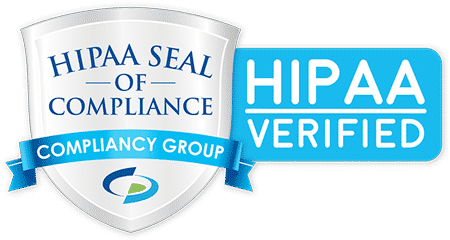
How to Protect Against Data Breaches
Data breaches are no longer something that only large organizations and Fortune 500 companies have to worry about. Small businesses are vulnerable, too. But with the right approach and planning, you can prevent costly breaches from sinking your company. Here’s what you need to know.
What Is a Data Breach?
A data breach refers to any incident in which sensitive, confidential or protected information is accessed, stolen, used, or disclosed without authorization. Data breaches can occur in various forms, including:
- Cyberattacks: Cyberattacks are one of the most common forms of data breaches. A cyberattack can occur when a hacker or cybercriminal gains unauthorized access to a company’s network or system. Once inside, the hacker can steal sensitive data or deploy malware or ransomware that can cause significant damage to the organization’s IT infrastructure.
- Hacking: Hacking is a form of cyberattack where a hacker gains unauthorized access to a company’s IT system or network. Hackers may use a variety of techniques to gain access, such as exploiting vulnerabilities in software or hardware or using social engineering techniques to trick employees into giving away login credentials.
- Phishing: Phishing is a type of social engineering attack that uses fraudulent emails or messages to trick users into giving away their sensitive information, including login information or financial details. Phishing attacks can be highly targeted and sophisticated, making them difficult to detect.
- Physical theft: Physical theft of devices or documents is another form of data breach. This can occur when a thief gains access to physical documents or devices that contain sensitive information. For example, an employee’s laptop or smartphone containing confidential data could be stolen from their car or office.
- Insider threats: Insider threats occur when an employee, contractor or other trusted insider intentionally or accidentally leaks sensitive information. This can occur through actions such as unauthorized data access or copying, or unintentional data exposure through insecure devices or practices.
- Unintentional disclosure: This term refers to situations when sensitive information is accidentally shared or leaked due to human error. This may include incidents such as sending an email containing sensitive information to the wrong recipient, or leaving a laptop or mobile device containing sensitive information unattended in a public place.
The proliferation of technology and the increasing sophistication of cybercriminals over the past decade means data breaches have become more common and sophisticated. Hackers are continually developing new methods to breach security systems, which requires businesses to remain vigilant and take proactive steps to protect themselves.
There are various laws and regulations in place that require businesses to protect their customers’ data. For example, in the United States, companies must comply with laws such as the Health Insurance Portability and Accountability Act (HIPAA) and the General Data Protection Regulation (GDPR) in Europe.
Data breaches can happen to any business, regardless of size or industry—and they can have severe financial consequences. Collateral costs include fines, legal fees, and the cost of remediation efforts. Businesses may also lose customers, suffer a decline in revenue, and experience reputational damage, which can have long-lasting effects on the future of the organization.
Three Ways to Protect Against a Data Breach
It’s impossible to completely eliminate 100% of risk when it comes to data breaches. You can, however, significantly reduce your risk by addressing key points of vulnerability and by staying one step ahead of malicious actors.
Here are some specific steps your business should take:
- Robust Security Measures: One of the most important steps businesses can take to prevent data breaches is to implement robust security measures. This includes installing firewalls, anti-virus software, and other security software to protect against malware and other cyberthreats. It’s also important to keep all software and systems up to date with the latest security updates to ensure that any vulnerabilities are addressed sufficiently and promptly.
- Compliance With Laws and Regulations: Another critical step in preventing data breaches is to ensure compliance with relevant laws and regulations. For example, businesses that handle sensitive personal information must comply with data protection laws such as the GDPR and the California Consumer Privacy Act (CCPA). Failure to comply with these laws can result in significant fines and legal consequences.
- Employee Education & Ongoing Training: In addition to implementing security measures and complying with relevant laws and regulations, businesses must also invest in employee training. Cybersecurity training should be provided to all employees, from senior management to entry-level staff. This training should cover topics such as identifying phishing scams, using secure passwords, and avoiding social engineering attacks. By providing employees with the tools and knowledge they need to identify and avoid cyberthreats, businesses can significantly reduce their risk of a data breach.

The Power of Partnership: How a Reliable MSP Helps Protect Against Data Breaches
While these steps can help prevent data breaches, they may not be enough on their own. For businesses that want additional protection, managed IT security services can be an excellent solution. Managed IT security services are provided by third-party providers who specialize in cybersecurity. These services typically include around-the-clock monitoring, threat detection and response, and other security measures designed to protect businesses from cyberthreats.
Partnering with a managed IT security services provider can be an effective way to protect against data breaches. These providers have the expertise and resources necessary to identify and address cybersecurity risks quickly and effectively. They can also provide businesses with access to the latest security tools and technologies, which can be expensive and difficult to implement in-house.
In addition to managed IT security services, businesses can also benefit from IT consulting in Knoxville. IT consulting firms can help businesses identify and address vulnerabilities in their systems and processes. They can also provide advice and guidance on how to improve cybersecurity practices and develop data breach solutions. By working with an IT consulting firm, your company can gain valuable insights and expertise that can help you better protect against data breaches.
IT Consulting in Knoxville Is Just a Click Away
Want to learn more about how Net3 can help you implement a strong IT infrastructure that’s less prone to data breaches and costly security incidents? Contact us today so we can explore some different options that might work for your business.

About Us
Since 2012, Net3 IT has offered enterprise-level IT experience and industry knowledge to help Knoxville businesses make the right decisions. We are committed to our customers’ success by providing cost-effective, high-value IT services, VOIP phone services, and strategic consulting.



